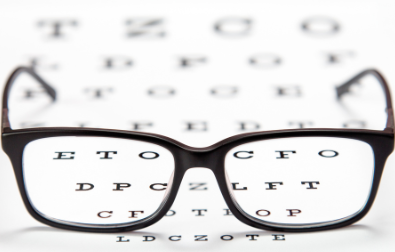 It’s safe to say that clear vision is important to have. It’s how we take in vast amounts of information, helping us to understand the world. Yet sometimes it can become blurry—fuzzy around the edges of what we’re looking at—and cause us to squint in the hopes that that will make it go away. So what causes blurry vision? How can it be corrected? We can boil the causes down to three main ones: refractive errors, eye conditions, and your general health. The corrections will depend on what type of situation you have. Here’s the breakdown:
It’s safe to say that clear vision is important to have. It’s how we take in vast amounts of information, helping us to understand the world. Yet sometimes it can become blurry—fuzzy around the edges of what we’re looking at—and cause us to squint in the hopes that that will make it go away. So what causes blurry vision? How can it be corrected? We can boil the causes down to three main ones: refractive errors, eye conditions, and your general health. The corrections will depend on what type of situation you have. Here’s the breakdown:
Refractive Errors
Refractive errors happen when the shape of the eye itself affects how we see. This might be something you’re born with, or it can develop over time as your eye grows and/or ages. These refractive errors include:
- Nearsighted (myopia): You can see near objects fine, but distant ones appear blurry.
- Farsighted (hyperopia): The opposite of nearsightedness, where you can see far objects fine, but close-up ones are blurry. This condition is genetic.
- Presbyopia: Similar to farsightedness, but instead of being born with it, it’s age-related, typically developing after 40.
- Astigmatism: With this refractive error, the eye is shaped like an egg (oval) rather than round, like an orange. It can be in one or both eyes and can cause focusing problems.
- Amblyopia: Also called “wandering eye” this condition has less to do with the shape of the eye and more to do with the nerve pathways that send information from the eye to the brain. One eye becomes stronger than the affected eye, causing blurry vision.
Fortunately, all the above refractive errors that cause blurriness can be corrected with glasses, contact lenses, patches, and, in some cases, special eye drops. You will need a comprehensive eye exam performed by your eye-care provider to get diagnosed.
Eye Conditions
Sometimes, it’s not the shape of the eye that causes vision issues, but other eye-related conditions. Click on the bulleted word to read more about these conditions:
General Health
Finally, your overall health plays a big part in your vision. Health issues like diabetes, autoimmune disorders, high blood pressure, and cancer can all lead to blurry vision. It’s important to eat right and get plenty of exercise to help your body to recover.
As always, talk with your doctors to develop the right course of action for you and your eyes!

